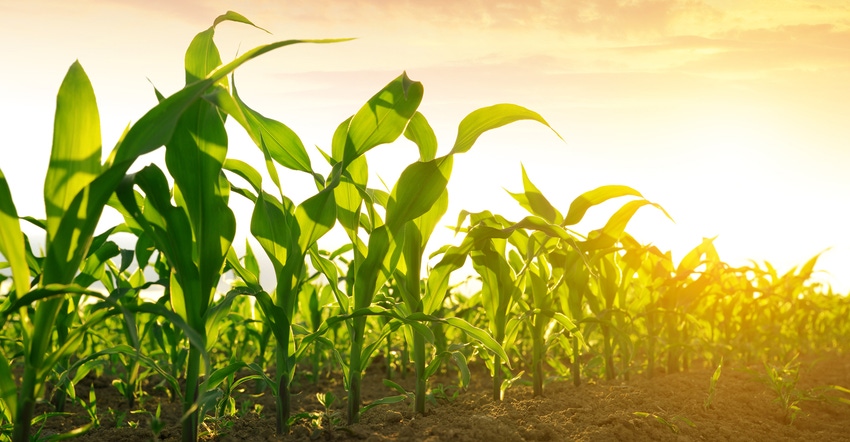
What carbon footprint does corn produced by U.S. farmers have in a low-carbon fuel market?
For Sachi Desai, senior director for Digital Partnerships for the Climate Corporation, the latest project between Bayer, Amazon and Bushel offers farmers the chance to find out that answer and possibly add value to their corn crop.
“What we’re trying to do is really establish a starting point,” Desai explains. “Integrate everything that originates from the farm gate to the end consumer, and weave in those pieces of information and data together to give you a complete view of the carbon generated, or the greenhouse gases generated from planting all the way to generation of a product.”
In the case of Bayer’s new Project Carbonview initiative, this starts from the cornfield to the ethanol fuel.
Project Carbonview is an industry-first digital carbon footprint measurement solution, Desai says. The pilot program focuses on the U.S. and will enable ethanol producers to track carbon emissions across the entire supply chain from planting through production. It also will implement more sustainable business practices by providing the data needed to make more informed purchasing decisions and reduce producers’ carbon emissions.
And it starts with Project Carbonview enrolling eligible farmers in the Upper Midwest within 50 to 100 miles of selected ethanol plants. According to Desai, the group wants to capture data on crop production practices from 25,000 to 50,000 acres initially. Eligible farmers who enroll in the pilot will receive compensation for participation. Ultimately, the project hopes the data will lead to creating a new value opportunity for farmers.
Currently, Desai says the farmer’s role in producing low-carbon ethanol is “undervalued.”
Determine corn production’s worth
Corn is a staple in ethanol production. California acquires low-carbon ethanol fuel for blending, and it’s created a price point for that carbon contribution to the market.
“But what hasn’t happened yet, explicitly, is approval of what the contribution actually is coming from the farm,” Desai explains. “It’s generally a static number. They have not recognized all the different digital tools that farmers use to capture and quantify information. Project Carbonview can help create a more accurate picture of that contribution.”
The goal is to be able to realize the value of corn at the farm gate for its role in low-carbon ethanol production, and ultimately if there is upside value, he says, farmers should share in that as well.
In this pilot program, corn growers do not have to change or add any new sustainable production practices to their operation. Farmers collect data using Bayer’s Climate FieldView application, along with some additional survey information, which is then fed into a model that will measure the carbon emitted during production, known in the industry as a carbon intensity score.
The idea, Desai explains, is to create that benchmark score. He envisions a time when farmers will be paid at the farm scale for points below the benchmark, but he admits those pieces are still in the works.
Desai says farmers are an important piece to making Project Carbonview a low-carbon fuel standard pathway for the California markets and other emerging low-carbon fuel markets. The pilot program also has team members determining how it can assist ethanol producers to capture the impact of corn production within their emissions reporting, as well as opportunities for users to share best practices for achieving emissions benchmarks within a dedicated community.
More about partnerships
Project Carbonview was conceptualized by Bayer Crop Science. It was built on Amazon Web Services and allows permissioned access to on-demand product transaction and crop exchange market data from the ethanol production facilities through the Bushel platform to evaluate the carbon impact of sourcing and purchasing decisions.
The team behind Project Carbonview is piloting the solution with U.S. corn producers during the 2022 season and plans to expand the program in the future to other global regions and other feed grains, food grains and oilseeds such as soybeans.
“We are very excited to launch a solution to help transform the food and agriculture value chain by paving the way for a more resilient, regenerative and net-zero carbon future,” says Leo Bastos, lead for Global Commercial Ecosystems at Bayer Crop Science. “While FieldView helps farmers make more informed decisions on their own operations, Project Carbonview will make it possible for them to drive sustainability improvements across the entire value chain. The integration of our leading digital and data science under Project Carbonview will give farmers greater choice and resources to be compensated for more productive and sustainable decisions on-farm.”
About the Author(s)
You May Also Like






